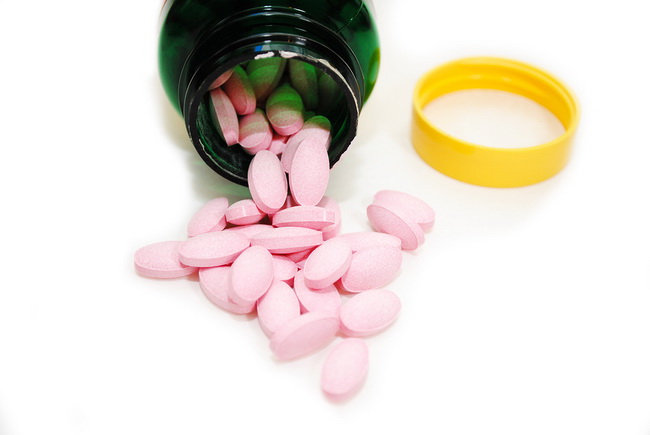- Make It Yourself Lavender Heart-Shaped Bath Bombs!
- 20 Things You Never Knew About “Down There”
- 12 Best Foods For Those Suffering From Arthritis Pain
- 12 Personal Hygiene Mistakes Almost Everyone Makes (Mom Never Told You About #4!)
- 15 Medicinal Plants And Herbs From The Cherokee People
- 12 Mind-Blowing Benefits Of Drinking Coconut Water During Pregnancy
- 12 Outstanding Winter Foods That Won’t Fatten You Up Like A Christmas Turkey
This Vitamin Deficiency is Rare Unless You’re a Vegan

Photo credit: bigstock
Our bodies’ requirement for this one vitamin is low but, at the same time, it’s essential! Even a mild deficiency can result in extreme fatigue, anemia, and weakness. More serious deficiencies can cause numbness, tingling in the extremities, nervousness, balance problems, and a feeling of being short of breath. Severe deficiencies can even lead to paranoia, brain damage, confusion, delusions, and nerve damage.
Infants will show this deficiency even more quickly than adults will. Symptoms usually begin as a lack of appetite and energy along with a failure to gain weight and thrive. This needs to be addressed quickly because if it is not diagnosed and corrected, it can lead to coma and death.
What is this very important vitamin? B12. That’s right B12. When choosing a B vitamin supplement, take B12 along with other B vitamins. Most B vitamins are sold as “B complex” because using any B vitamin for any length of time will cause an imbalance in the other B vitamins and high doses of B9 can hide a B12 deficiency.
B 12 has been used for quite some time when people complain of general malaise and unexplained fatigue. Some studies show that B12 can improve sperm count while other studies show that B12 and B9 can prevent breast cancer. B complex can help to lower homocysteine levels and age related macular degeneration, which is a condition that causes eventual blindness in the older persons.
Vegans and vegetarians are most at risk of developing a severe B12 deficiency. This is because B12 is most commonly found in salmon, tuna, cod, lamb, milk, yogurt, beef, shrimp, and scallops. Although some vegans will tell you that this is not true, that if you eat a healthy vegan diet, the bacteria in our stomachs will produce B12. The truth here is that your stomach does make B12, but it cannot be absorbed by the body. B12 can only be absorbed in our ileum, which is the very last section of the small intestine. Our bodies produce B12 in the stomach and large intestine, so that portion cannot be absorbed.
Continue to Page 2

Photo credit: bigstock
How do vegan animals get B12? They sometimes eat roots along with dirt, which has some B12, and some animals eat feces. An experiment done in the 1950’s has vegans with deficiencies in this vitamin eat B12 that had been extracted from their own feces. This worked as it solved their B12 deficiency. It also showed that B12 made by our bodies is eliminated through the large intestine and not absorbed.
OK, we are not suggesting that vegans eat poop to get B12. This vitamin is water soluble. Our bodies do not store it in fat. B12 is the only vitamin that is stored in the liver. We don’t need much, but it is necessary for the body to function. Many vegans go years without taking supplements due to storage in the liver, but once this is depleted, a deficiency will result and various symptoms will follow.
There are people who state that they can get sufficient amounts of this important vitamin when they eat the vegetables they are growing in their own gardens that have good soil. They also say that they often pick some veggies right out of the soil and eat them without washing, so they ingest some of that healthy dirt. Although this sounds good, eating very much like the animals do, this puts them at a very high risk of parasite infection. Read more how to fight with B12 deficiency.
Many processed foods, such as cereal and bread, have been fortified with B12 but eating processed foods are not a good idea and are the exact opposite of the healthy lifestyle you are trying to live as a vegan. Miso, Tempeh, and sea vegetables have been reported to sometimes contain B12 but this is not a reliable source you could rely on. In the past 60 years’ worth of studies or vegan experimentation, it’s been shown time and time again that eating processed foods with B12 added, or taking supplements, has been proven to be a reliable source of B12.
It’s much, much easier for vegans to just take a B12 supplement. There are plenty of nutritional yeasts and other supplements, but no matter how you look at it, just choose a good quality B complex supplement. Ideally, take a daily supplement with about 10 micrograms, or a weekly supplement that gives you at last 2,000 micrograms of B12. This is one vitamin that your body absorbs best in small amounts and there is no harm in exceeding the above amounts, your body just eliminates any excess.
Sources:
































